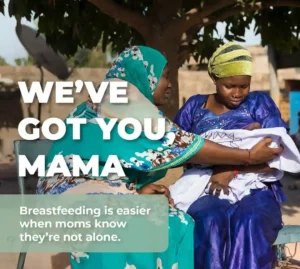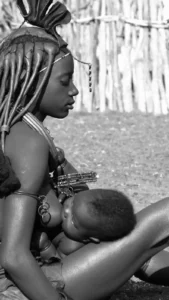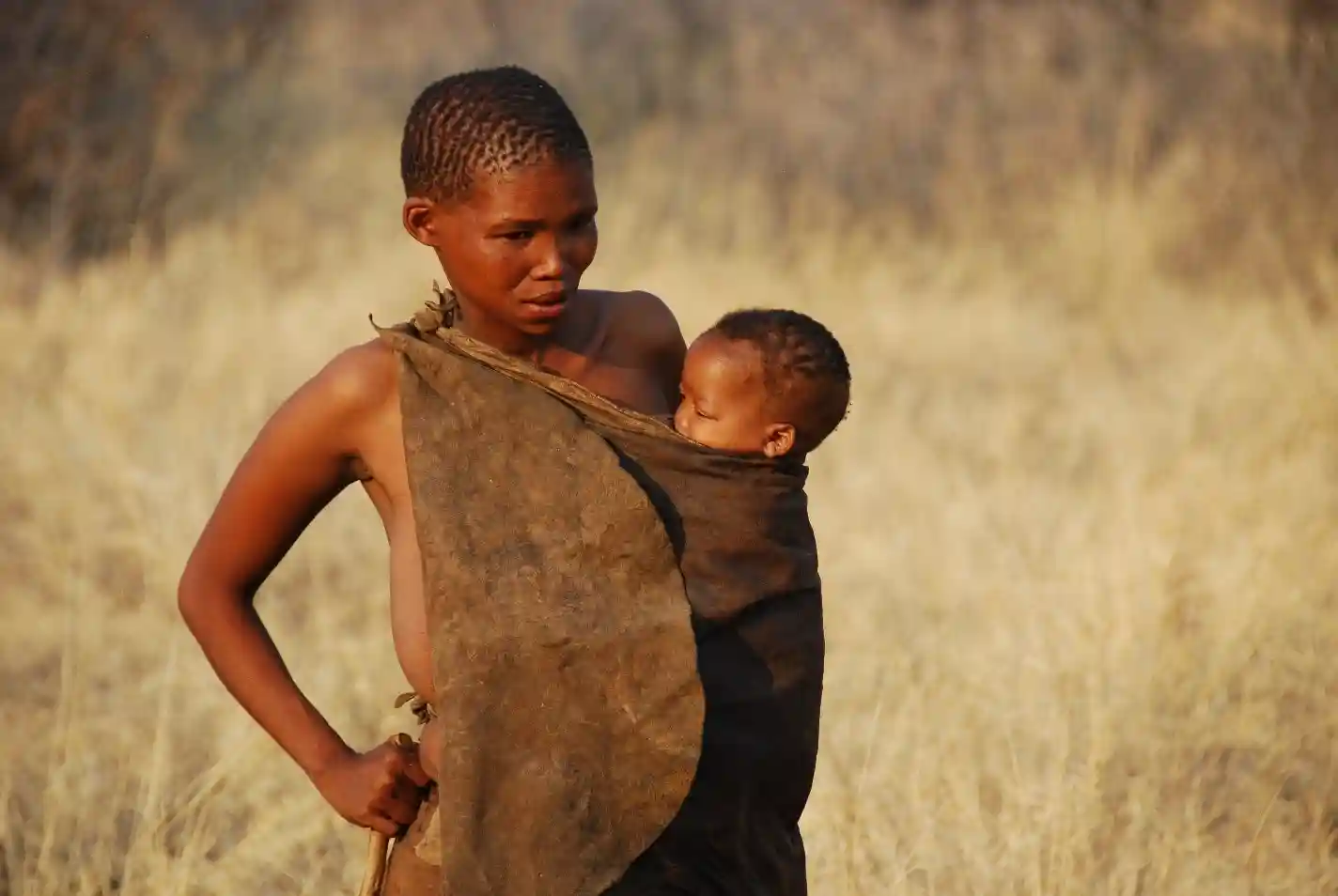African Center for Policy and Advocacy (ACPA) shows its support for promoting good breastfeeding practices and health for new mothers, as it marks the ‘World Breastfeeding Week’. As Breastfeeding is not a choice it’s a responsibility. Milk of mother’s breast protect infants against illnesses and malnutrition.
Also, it is also beneficial for the mothers on the health aspects. Breastfeeding also reduces the risk of diabetes, obesity, and several kinds of cancers for the mothers.
World Breastfeeding Week is held in the first week of August from date 01 to 07, every year, and is supported mainly by the WHO, UNICEF and many Ministries of Health and civil society partners.
The theme for the 2024 campaign is ‘Closing the Gap: Breastfeeding support for all’. The campaign will celebrate breastfeeding mothers in all their diversity, throughout their breastfeeding journeys, while showcasing the ways families, societies, communities and health workers can have the back of every breastfeeding mother.
World Breastfeeding Week
The World Breastfeeding Week (WBW) is held in the first week of August every year. It is observed in commemoration of the 1990 Innocenti Declaration. WBW was beginning in the year 1992, with the annual themes including healthcare systems, women and work, the International Code of Marketing of Breastmilk Substitutes, considering the community support, ecology, economy, science, education and human rights.
However, since 2016, WBW is aligned with the Sustainable Development Goals (SDGs). Back in 2018, a World Health Assembly resolution endorsed WBW as an important breastfeeding promotion strategy.
To excel the awareness regarding this, WHO has set certain objectives which considers to inform, to anchor, to engage and to galvanise.
- Inform: celebrants about the selected theme of the year
- Anchor: the theme within the global breastfeeding agenda
- Engage: with individuals and organisations for greater impact
- Galvanise: action on the selected theme and related issues

World Breastfeeding Week – An Annual Campaign
World Alliance for Breastfeeding Action (WABA) coordinates with the global World Breastfeeding Week (WBW) campaign that aims to inform, anchor, engage and galvanise action on breastfeeding and related issues.
Since 2016, WABA has aligned with WBW campaign to United Nation’s Sustainable Development Goals (SDGs), which is called as WBW-SDGs Campaign.
It is a shared responsibility, where families, communities, healthcare workers, policymakers and other decision-makers, they all play a central role by contributing their part, such as:
- Increasing investment in programmes and policies that protect and support breastfeeding through dedicated national budgets.
- Implementing and monitoring family friendly workplace policies, such as paid maternity leave, breastfeeding breaks and access to affordable and good-quality childcare.
- Ensuring mothers who are at-risk in emergencies or under-represented communities, receive breastfeeding protection and support in line with their unique needs, including timely, effective breastfeeding counselling as part of routine health coverage.
- By improving the monitoring of breastfeeding programmes and policies to inform and further improve breastfeeding rates.
- Also developing and enforcing laws, by restricting the marketing of breast-milk substitutes, including, digital marketing practices, with monitoring to routinely report of the code violations.
What WHO Says!
As per World Health Organisation (WHO), Breastfeeding is one of the most effective ways to ensure child’s health and survival. Contrary to the recommendations of WHO, fewer than half of the infants under 06 months old are exclusively breastfed.
Breastmilk is considered as the ideal food for infants, and considering this WHO has also released some guidelines and recommendations that are:
- The mother should start breastfeeding immediately after the birth of the child
- Breastfeed is exclusively done for the first 6 months of the birth.
- It should be continued until the child stops latching and/or gets 2 years old.

Why celebrate Breastfeeding Week?
Breastfeeding can act as an equalizer in the society and there is a need to put efforts that must ensure that everyone has access to breastfeeding support and opportunities. It is essential that no-one is left behind, especially the vulnerable mothers who may need additional support to reduce breastfeeding inequalities.
The campaign majorly targets the audiences that includes actors along the Warm Chain of Breastfeeding support, civil society organisations, governments, policymakers, health systems, workplaces, communities and parents will be engaged to close the gap in breastfeeding inequalities and support breastfeeding for all especially the vulnerable groups.
WBW campaign supports:
- Policies and attitudes that value women and breastfeeding
- A women and breastfeeding-friendly health care system
- Respect for women’s autonomy and her right to breastfeed anytime, anywhere
- Solidarity and community support
Breastfeeding is a very important part of both mother and child’s life, which need to be taken care of with utmost caution. The process is beneficial for their health and kills chances of occurrence of many diseases.
While supporting the great cause African Center for Policy and Advocacy (ACPA) is playing its part. APCA is a non-governmental and non-profit organisation that operates across the whole African continent.
ACPA aims to empower African citizens to take an active role in decision-making processes that affect their lives. The primary focus is to educate the public about the critical policy issues and engage with the policymakers to ensure that citizens’ voices and concerns are considered in policy decision-making.
It promotes the inclusive and democratic governance across the continent by providing citizens with a platform to express their opinions, ideas and visions for their nations’ policies.

